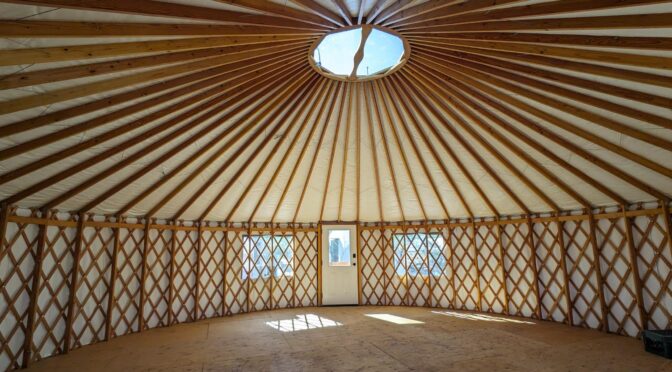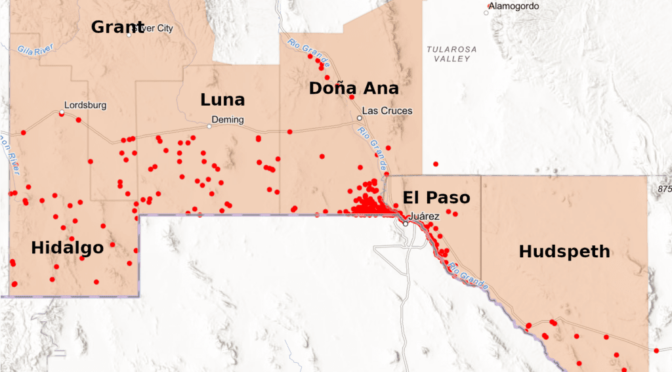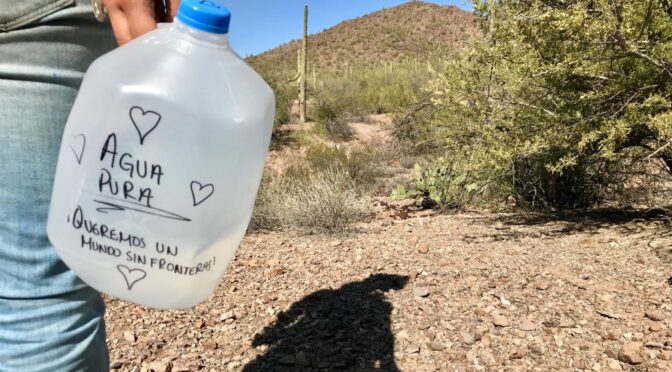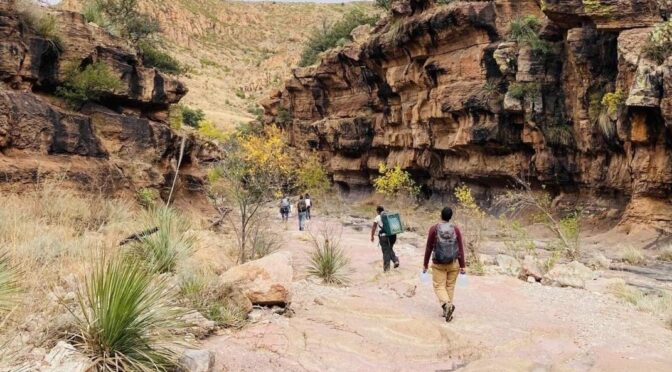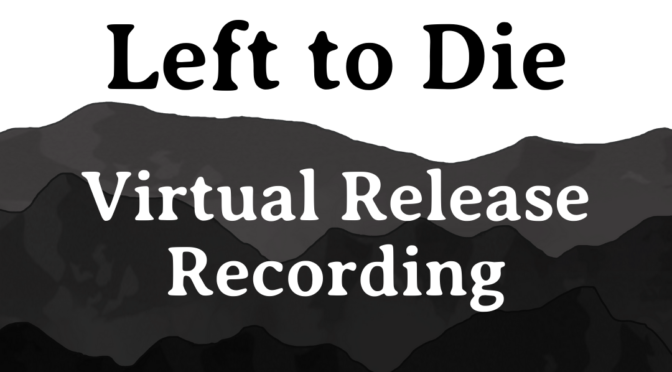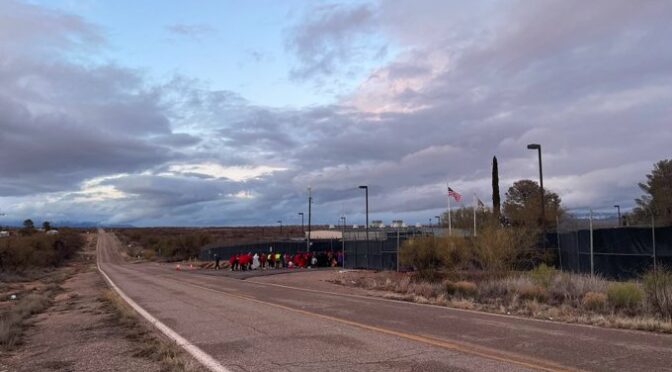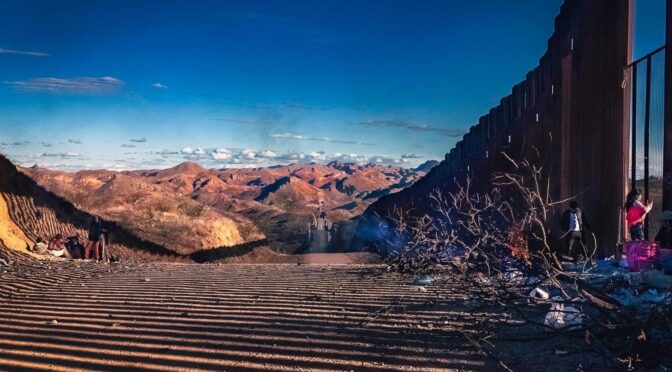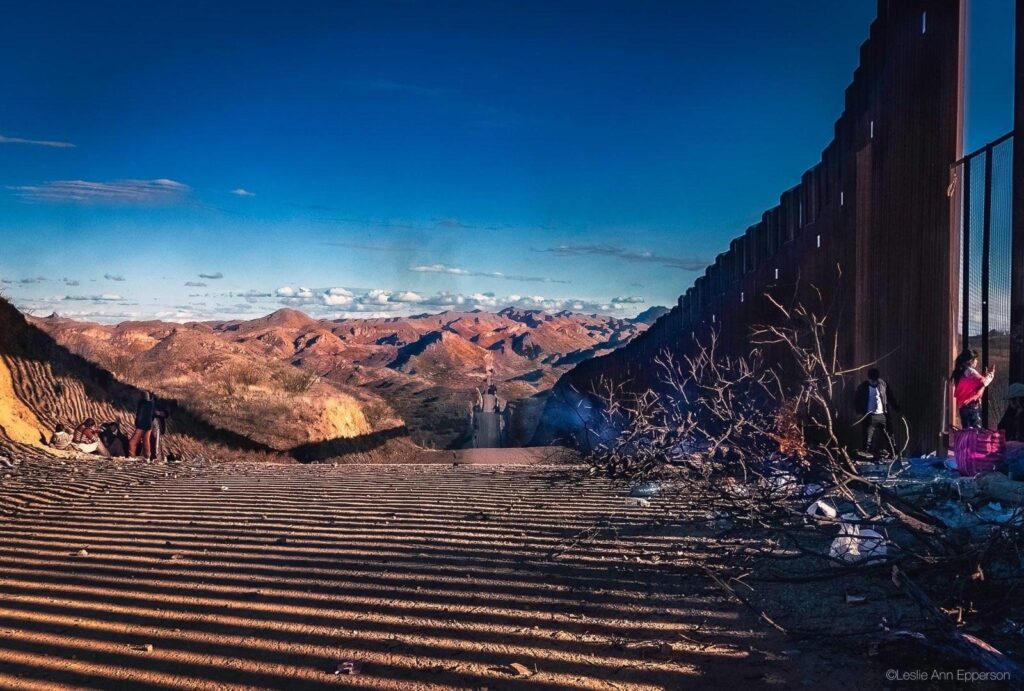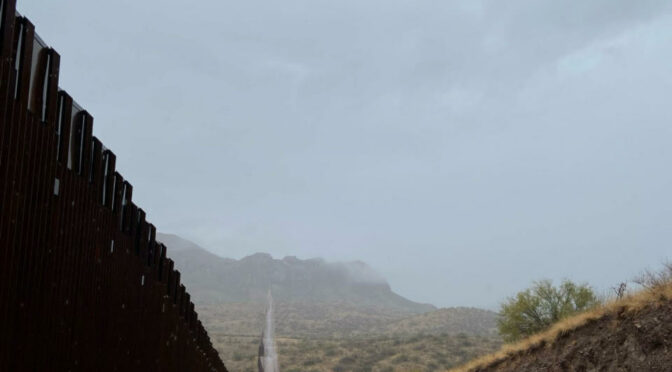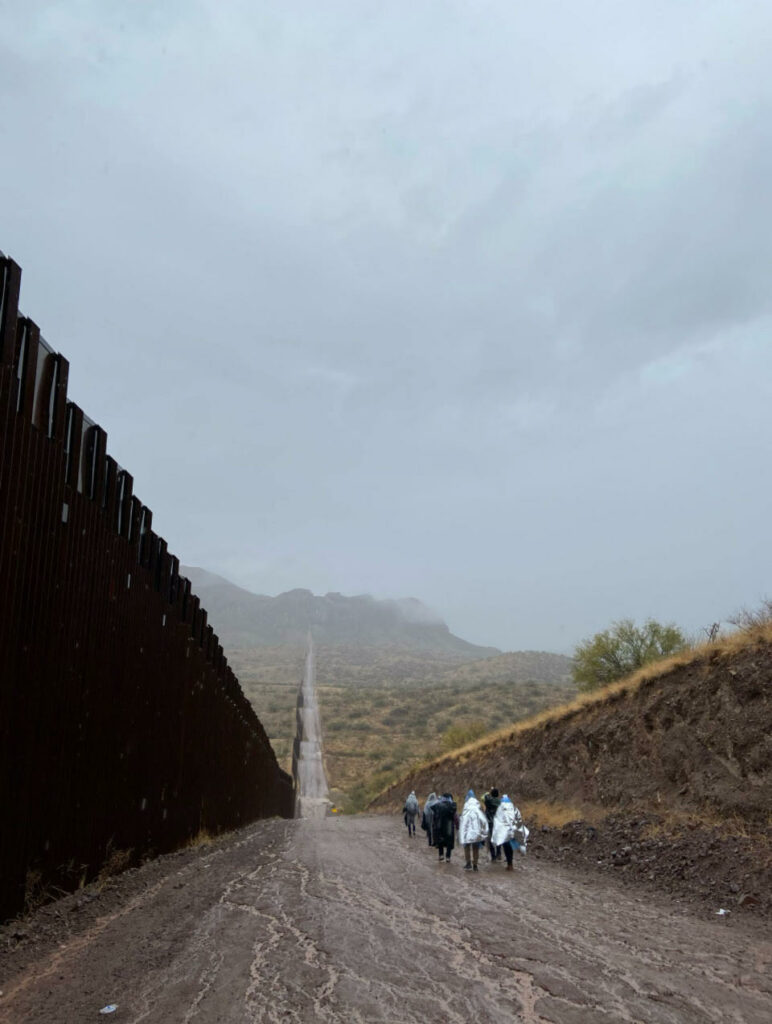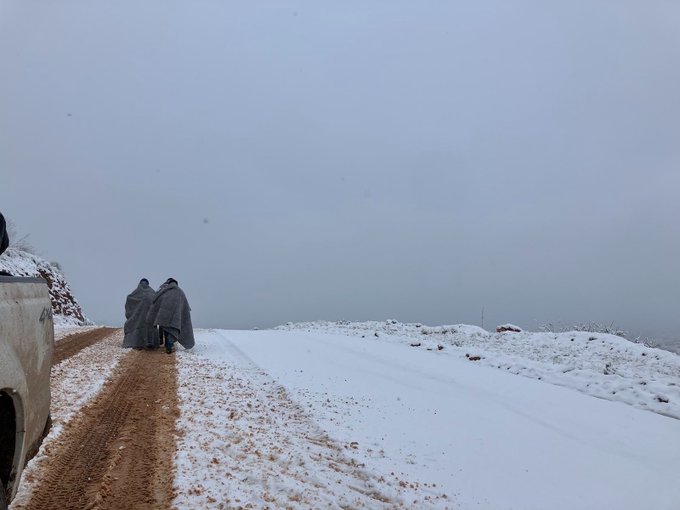
Approximately 400 asylum seekers waited along the border wall near Sasabe, Arizona yesterday, in hopes of being picked up by Border Patrol.
Border Patrol never came. During the night, snow and freezing temperatures set in. By this morning, a few inches of snow had accumulated and humanitarian aid volunteers found hundreds of people still stranded along the wall with no sign of a Border Patrol response.
Volunteers with No More Deaths, Tucson Samaritans, and Green Valley Samaritans began evacuating people to the Border Patrol Station in Sasabe. Many volunteers were detained and threatened with arrest by Border Patrol agents who said that they were informed of the situation but did not plan to drive out to address it. As the snow melted and road conditions turned muddy, volunteer vehicles continued to evacuate people despite threats of arrest in anticipation of more dangerously cold conditions tonight.
Now, Border Patrol is refusing to allow more people into the station to be processed. At the time of writing, there are over 250 adults and children left exposed to the elements outside of the Sasabe station. Despite persisting for over three months, Border Patrol has failed to adequately allocate resources to address this ongoing crisis.
People cannot be left out in such life-threatening conditions. A response must be enacted now to establish adequate shelters, warming centers, and other basic necessities for those who seek safety and asylum in Sasabe.

